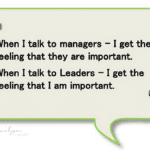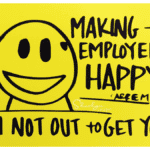(Editor’s Note: Today’s article is sponsored by our friends at Primalogik, a cloud-based performance management solution that provides a flexible way to manage employee reviews, 360-degree feedback, goals, and engagement surveys. Enjoy the read!)
One of the talent challenges that I’m seeing right now is that organizations haven’t thought about how they will be conducting performance reviews with a remote workforce. We all know that employees need feedback about their performance and there are many ways to do it – performance reviews, one-on-one meetings, rewards, recognition, and 360 reviews.
In thinking about employee performance and feedback, organizations often immediately see the connection between performance reviews, one-on-one meetings, rewards, and recognition. But they don’t often see the connection between performance reviews and 360 reviews. There’s a great synergy between the two that shouldn’t be overlooked.
Before we talk about the synergy between these two activities, let’s do a quick refresher on each and their intended purpose.
The performance appraisal is a process between an employee and their manager. It typically covers the employee’s performance and results over a specific time period. It ideally includes goal setting, usually related to the employee’s role. And the results of a performance review might be linked to compensation and promotional opportunities.
The 360 review is a process between the employee, their manager, co-workers, and sometimes other colleagues or customers. It typically covers the employee’s performance and behaviors over a specific time period. The results are typically aggregated and anonymous, to reduce bias. And the results of a 360 review are linked to training, development, and learning activities.
Use Performance Review and 360 Review Together
As you can see these two processes are very different. That’s a good thing. Because we can use them together as a career development tool. There’s a difference between what gets done and how it gets done. A performance review talks about what the employee accomplished. A 360 review shares how the employee accomplishes their goals.
Yes, I know what you’re thinking and it’s true. The manager does have some sense of how employees accomplish their goals. However, in my experience, I’ve worked with more than one manager who was focused more on the results than the methods. I’ve had to deal with the challenges of the high performing employee who is not a good collaborator. I’ve seen situations where the employee’s performance review is glowing, but they get regular complaints from co-workers. The question becomes would a 360 review say the same thing as a performance review?
Talent development should be an essential part of the performance management process. I’ve always said that one of the worst things an organization can do is hire and/or promote someone based on their technical ability and never give them the power skills (aka soft skills) to be successful. A growing number of organizations realize this too and the future of talent in their company rests on developing future managers and leaders.
Make no mistake, those individuals still need to be able to do the work. They get that feedback about their technical ability in their performance appraisal. They also need to get training and development on how to be a good manager and leader. This is where a 360 review can be valuable. The results of the 360 review can create a learning and development road map.
If your organization is already doing 360 reviews, that’s great! Please don’t forget about the performance appraisal. Employees are getting a lot of information in the 360 review. Organizations should make sure they are receiving feedback about the technical aspects of their role and getting the opportunity to set goals in this area. How the work gets done is important. It’s essential. But employees do need to get the work done.
Performance Behaviors and Results are Equally Important
Employees need and want feedback about their work. Especially when they work remotely. Employees want to know that they’re not forgotten, and the company sees their hard work. Performance reviews and 360 reviews can work together to tell employees that their results and the methods they use to achieve those results are appropriate and on target. It helps employees stay engaged with the organization and encourages them to work harder.
If you want to learn more about how to use performance reviews and 360 reviews together in your performance management system, I hope you’ll take a few moments to listen to this recorded webinar with me and the Primalogik team on “Performance Management: Using 360 Reviews for Better Results”. We had a great conversation about how performance management can help organizations achieve better outcomes at an individual as well as organizational level.
23








